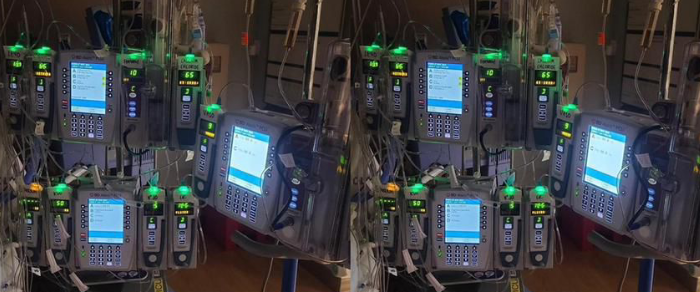

Fear now walks openly on the streets of Zaki Biam in Ukum Local Government Area of Benue State, and residents say it has become their newest neighbour—one that refuses to leave. What used to be a bustling agrarian community known for its yam market has steadily slipped into a chilling nightmare, as cases of kidnapping threats, motorcycle theft, and suspected cult activities spiral out of control. Those who call the town home say they now live in constant dread, unsure who might be watching or when the next threat might come. And in a shocking twist that reveals just how dire the situation has become, some residents have begun paying criminals as much as ₦100,000 simply to be left alone.
Over the weekend, a community member who spoke with Vanguard revealed that unknown callers have been terrorising residents by phone, demanding money and threatening abduction if their demands are not met. According to him, these callers speak with a level of coordination and confidence that suggests a well-organised syndicate. “People are scared because these callers sound serious and very coordinated. We need urgent help before things get out of hand,” he said, capturing the helplessness that now engulfs the area.
The fear is not imagined. The community member disclosed that the security situation in the area has deteriorated sharply, with many residents attributing the growing unrest to the activities of an alleged cult group. This group, he claimed, regularly holds meetings at a shop reportedly owned by its suspected leader, situated near the old SSS office along the Yam Market bypass. “These boys meet both during the day and very late at night. Their activities are suspicious, and everyone in the area is worried about what they are planning,” he said. Their presence has created psychological unrest, turning even ordinary neighbourhood movements into moments of anxiety.
But the terror does not end there. Motorcycle theft has become another major threat tightening its grip around the community. For a place where motorcycles are not just vehicles but the backbone of daily life and a major source of livelihood, the surge in theft is devastating. Residents say thieves now target riders at night, making the already fearful hours of darkness even more dangerous. “Because all the motorcycle thefts have happened at night, people no longer move around freely once it gets dark,” the resident explained. The nights, once simply quiet, have now become a symbol of danger and vulnerability.
As though motorcycle theft and cult activities were not enough problems to contend with, kidnapping threats have taken the fear to an unprecedented level. One of the most alarming cases involves a POS operator who allegedly paid ₦100,000 to criminals after being threatened with abduction. The criminals reportedly warned that if the money was not sent, they would come for him. The resident described the situation with palpable distress: “Imagine receiving a call telling you to send money or you will be taken away. That is the kind of fear people here are living with every day.”
This type of extortion—where innocent community members are forced to pay criminals simply for safety—has transformed daily life into a dangerous gamble. People now live with their phones in equal parts necessity and fear, worried that a familiar ring tone could signal yet another demand for ransom. For many, the psychological toll is as damaging as the financial extortion. The fear of being kidnapped without warning has pushed some residents into silence, others into panic, and many into a form of reluctant compliance that undermines their dignity and security.
As these threats mount, the cry for help from Zaki Biam grows louder, but the response remains painfully slow. Residents say they feel abandoned, unseen, and unprotected. “We are appealing to the government and security operatives to come to our rescue. Lives and property are no longer safe, and something must be done urgently,” the resident lamented. His words echo the sentiments of an increasing number of community members who believe that the authorities have not responded with the urgency demanded by the escalating crisis.
Yet, for now, the town waits—sometimes with hope, often with fear—for that intervention. Efforts to reach the Police Public Relations Officer, DSP Udeme Edet, were unsuccessful at the time of reporting, leaving even more questions about how quickly the authorities intend to address the situation. With every passing day, residents say the criminals grow bolder, the threats more frequent, and the general atmosphere more suffocating.
The situation in Zaki Biam is more than a local security issue; it is a stark reminder of the fragile safety net in many rural communities across Nigeria—places where security operatives are often scarce, responses delayed, and residents left to fend for themselves. In such places, criminal networks flourish, preying on fear, poverty, and powerlessness. The story of people paying criminals ₦100,000 to avoid being kidnapped is not just an indictment of the local security situation; it is a glaring symbol of a system stretched thin.
For the people of Zaki Biam, life has become a careful calculation of risk—one in which even going to sleep at night feels uncertain. Parents are afraid for their children, business owners fear for their livelihoods, and community members fear for their lives. The atmosphere is thick with tension, suspicion, and helplessness. The streets, once busy with commerce and movement, now grow quieter with each passing night.
Yet the resilience of the community shines through the fear. Even as they recount their trauma, residents cling to hope, urging the government to step in and restore order. They believe that with the right intervention—from increased patrols to dismantling criminal cells and addressing the alleged cult groups—their town can return to the peaceful place it once was. But until that intervention comes, the people remain trapped in uncertainty, navigating a harsh reality where safety has a price and danger lurks just one phone call away.
Zaki Biam has become a community under siege, not by external enemies, but by criminal elements operating with alarming audacity. The residents’ plea is simple yet urgent: restore security, restore peace, restore dignity. Their voices are rising, but the question remains—who is listening, and when will help arrive?


